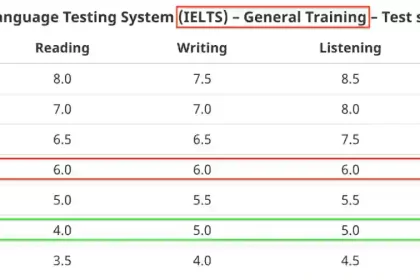\n
Magnesium deficiency, also known as hypomagnesemia, is one of the health problems that people often ignore. Symptoms of magnesium deficiency It can be different for different people. This deficiency can affect the body, mind and soul of a person. Taking magnesium supplements daily can help improve your health. In the following, we will examine the symptoms of magnesium deficiency.
What is magnesium, in what foods is it available and what factors affect its amount in the body?
Magnesium is an important electrolyte. Magnesium plays a key role in many reactions that occur in the human body and affects cell function, nerve conduction and other needs. The normal level of serum magnesium is between 1.46 and 2.68 mg/dL. Hypomagnesemia is an electrolyte disorder caused by a low level of serum magnesium (less than 1.46 mg/dL) in the blood.
However, it is usually asymptomatic until the serum magnesium concentration falls below 1.2 mg/dL (0.5 mmol/L). According to reliable sources, estimates state that 2 to 15 percent of Americans suffer from magnesium deficiency, and this percentage is much higher in hospital and intensive care patients, people with diabetes, and people who consume alcohol. In some cases, a deficiency may go undiagnosed because obvious symptoms usually don’t appear until your body’s magnesium levels drop dramatically. In some conditions, such as diabetes, poor absorption, chronic diarrhea and celiac disease, magnesium loss is associated. People who drink alcohol chronically are also at risk of magnesium deficiency.
Magnesium supplements come in different forms based on their salt. This form contains 10 forms of magnesium salt, which include: magnesium citrate, magnesium oxide, magnesium chloride, magnesium lactate, magnesium malate, magnesium tarate, magnesium l-threonate, magnesium sulfate, magnesium glycinate and magnesium orotate.
Magnesium Citrate is the best type of magnesium salt for better absorption and therapeutic applications in nervous diseases such as depression and anxiety and can be used by those who suffer from problems and kidney stones. It can also be used as a laxative in high doses.
What are the symptoms of magnesium deficiency in the body?
Cramps and muscle cramps
Cramps, tremors, and muscle cramps are among the symptoms of magnesium deficiency in the body. At worst, a deficiency may even cause seizures. Scientists believe that these symptoms are caused by an increased flow of calcium into nerve cells, which overstimulates muscle nerves.
Remember that involuntary muscle twitching can have many causes. For example, stress or excessive caffeine consumption can also cause involuntary muscle spasms. This may also be a side effect of some medications or a sign of neuromuscular diseases such as muscular dystrophy, multiple sclerosis, or myasthenia gravis.
Mental health conditions
Creating disorders in people’s mental health is another possible effect of magnesium deficiency. One of these examples is the loss of interest in some usual pastime activities, characterized by mental numbness or lack of feelings. Also, low levels of magnesium may increase the risk of stress, depression and anxiety in a person. According to an authoritative review, magnesium supplements may be beneficial for a subset of people with anxiety disorders, but the quality of the evidence is poor. However, higher quality studies are necessary to reach further conclusions.
Osteoporosis
Osteoporosis is one of the common disorders that weaken bones and increase the risk of bone fractures, especially in old age and postmenopausal women. Magnesium deficiency is a warning sign for people suffering from osteoporosis. Magnesium deficiency may directly weaken bones, but in addition, magnesium deficiency leads to decreased blood levels of calcium, the main building block of bone.
Several factors affect the risk of developing osteoporosis, including:
- old age
- Not having a regular exercise routine
- Inadequate consumption of vitamins D and K in the diet
Fatigue and muscle weakness
Fatigue is a general term that includes physical and mental symptoms or weakness. In a simple word, it means that you need to rest. However, severe or persistent fatigue may indicate the development of a health-threatening factor. General fatigue and specific and unusual muscle weakness are symptoms of magnesium deficiency. Low magnesium levels affect multiple body processes, including nerve signaling and potassium levels in muscle cells, which may cause fatigue and weakness, respectively.
high blood pressure
Animal studies have shown that magnesium deficiency may increase blood pressure and further increase high blood pressure in people with this condition, which is a serious risk factor for heart disease.
While there are no direct clinical studies in humans, research has shown that low levels of magnesium or low dietary intake of magnesium may increase blood pressure. In addition, studies have shown that magnesium supplements may lower blood pressure, especially in adults with high blood pressure.
Asthma
Magnesium deficiency in people with asthma is one of the most important symptoms in the exacerbation of their symptoms. In addition, magnesium levels are naturally lower in people with asthma than in people without the disease. Inhalers containing magnesium sulfate can often help relieve mild asthma symptoms, and intravenous magnesium sulfate is an effective treatment for improving asthma symptoms. However, the evidence for the effectiveness of magnesium supplements in people with asthma is conflicting.
Irregular heartbeat
Cardiac arrhythmia, or irregular heartbeat, is a potentially severe effect of magnesium deficiency in the body. Arrhythmias can range from asymptomatic to very serious. Magnesium deficiency in some people may cause palpitations, which are pauses between normal heartbeats. In the most severe cases, arrhythmias may increase the risk of stroke or heart failure.
How to get enough magnesium?
One of the best supplements. Biomagnelite 300 mg of magnesium citrate form is in powder form and can be used by people with kidney failure and pregnant women, and you can use them daily depending on your needs.
\n
\n
RCO NEWS
\n
RCO
\n


















